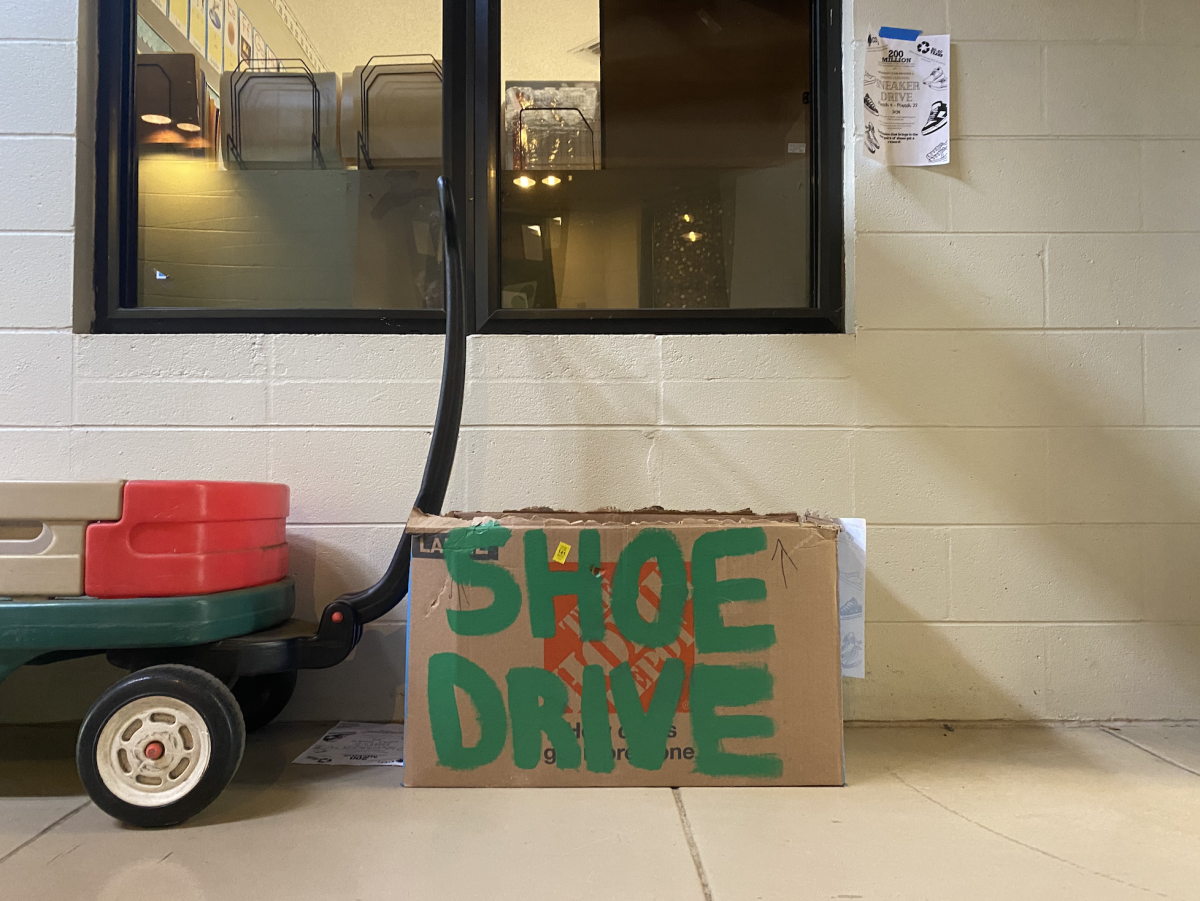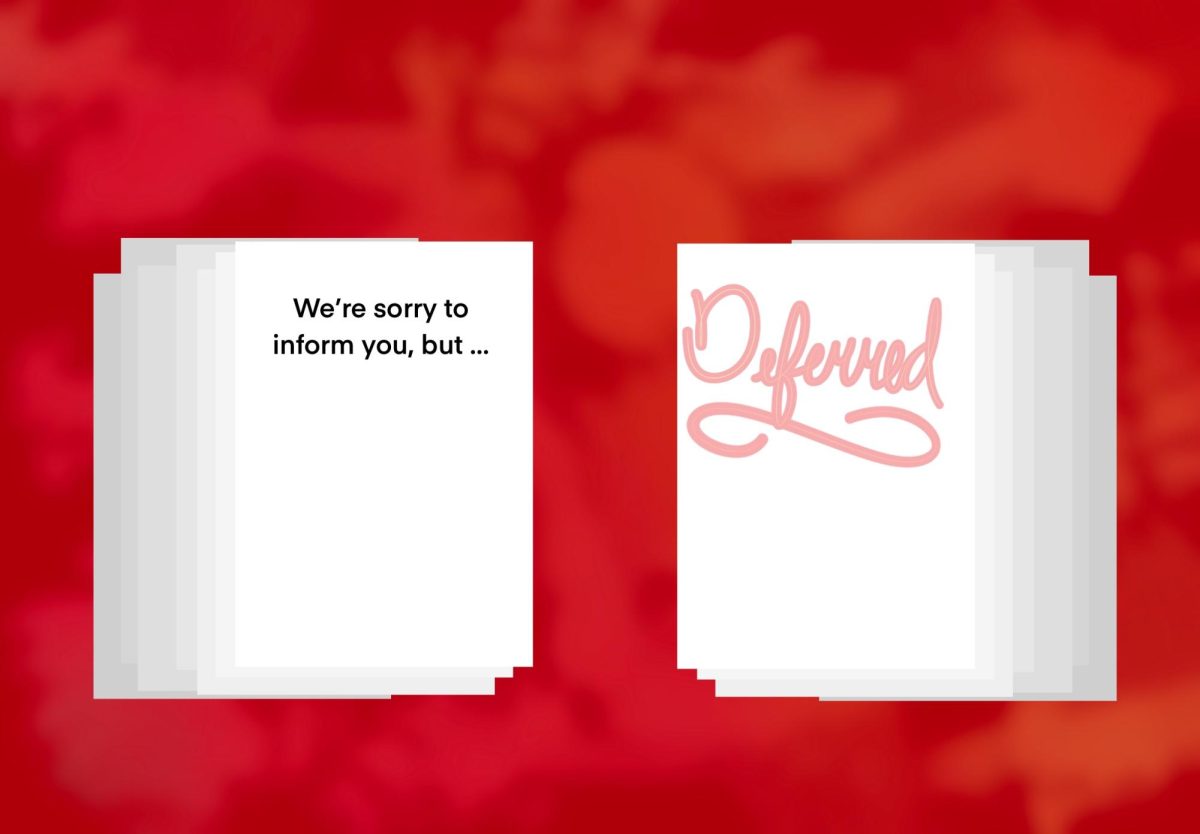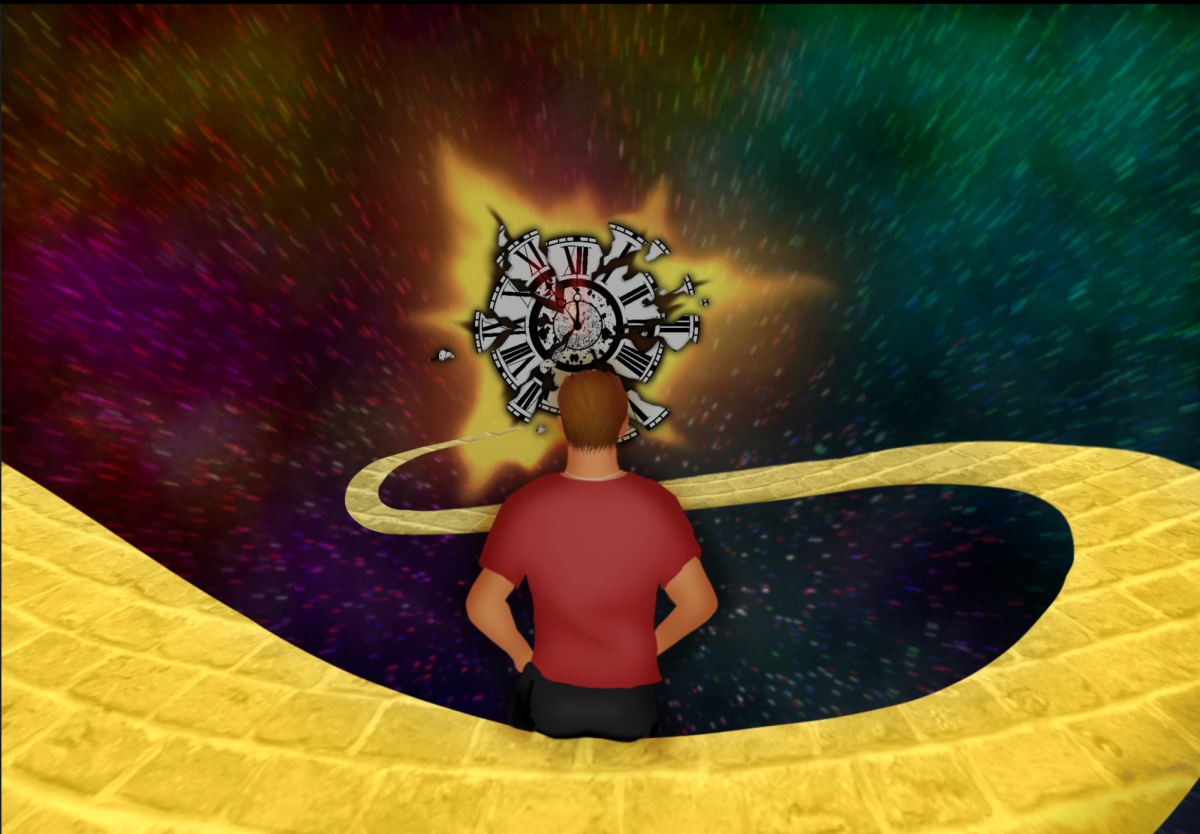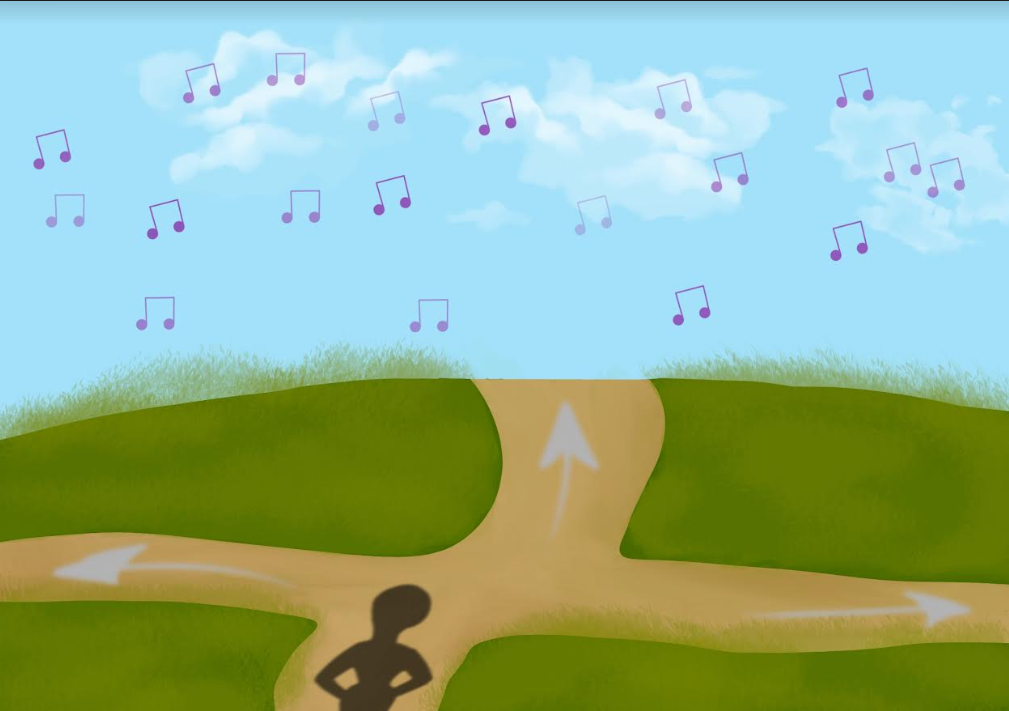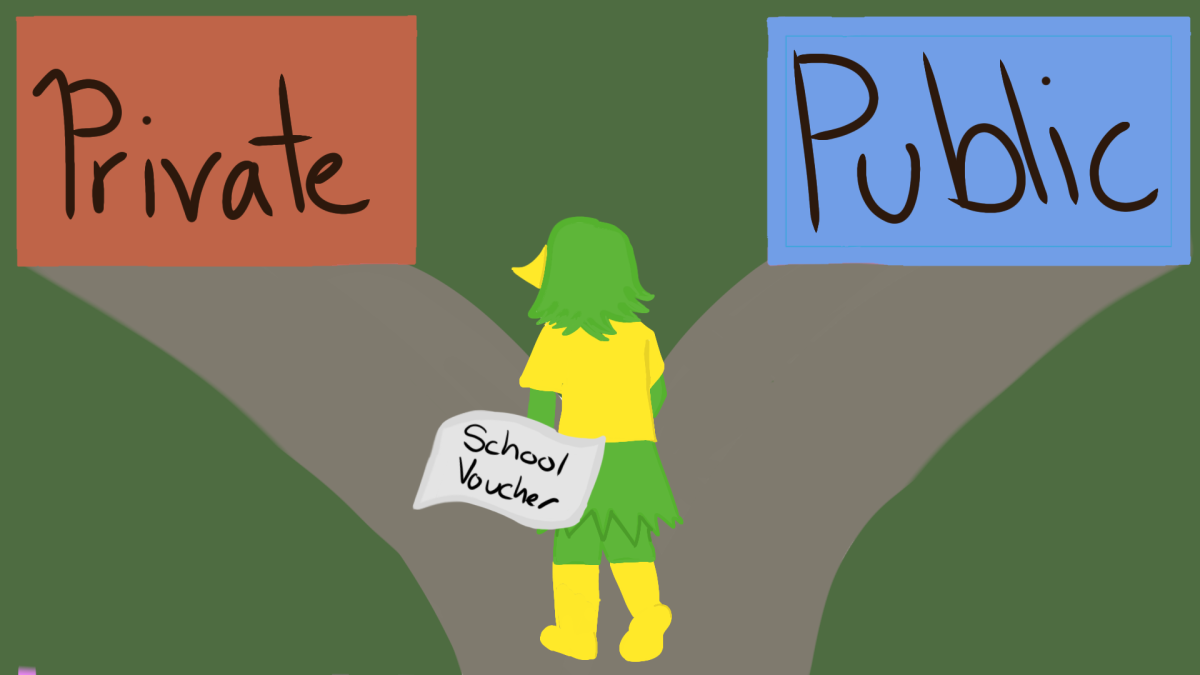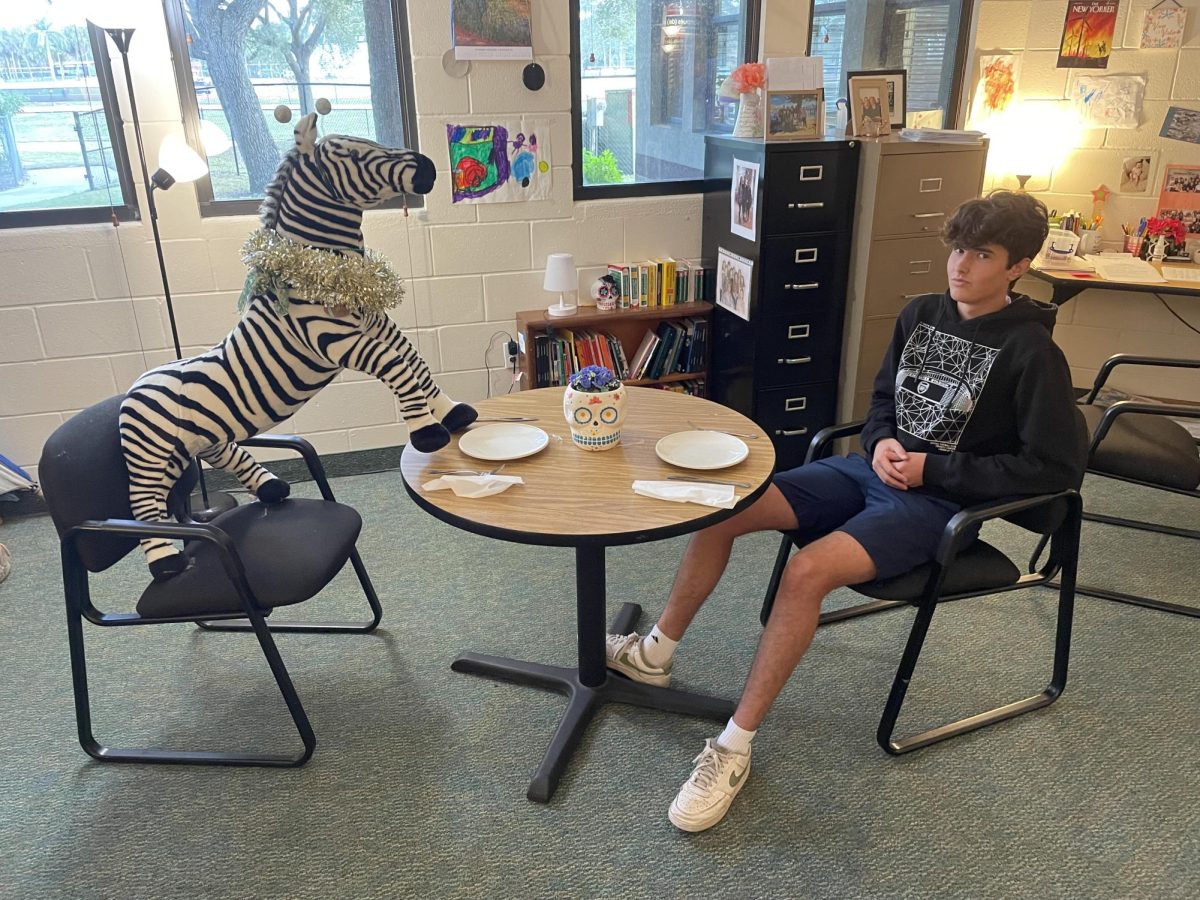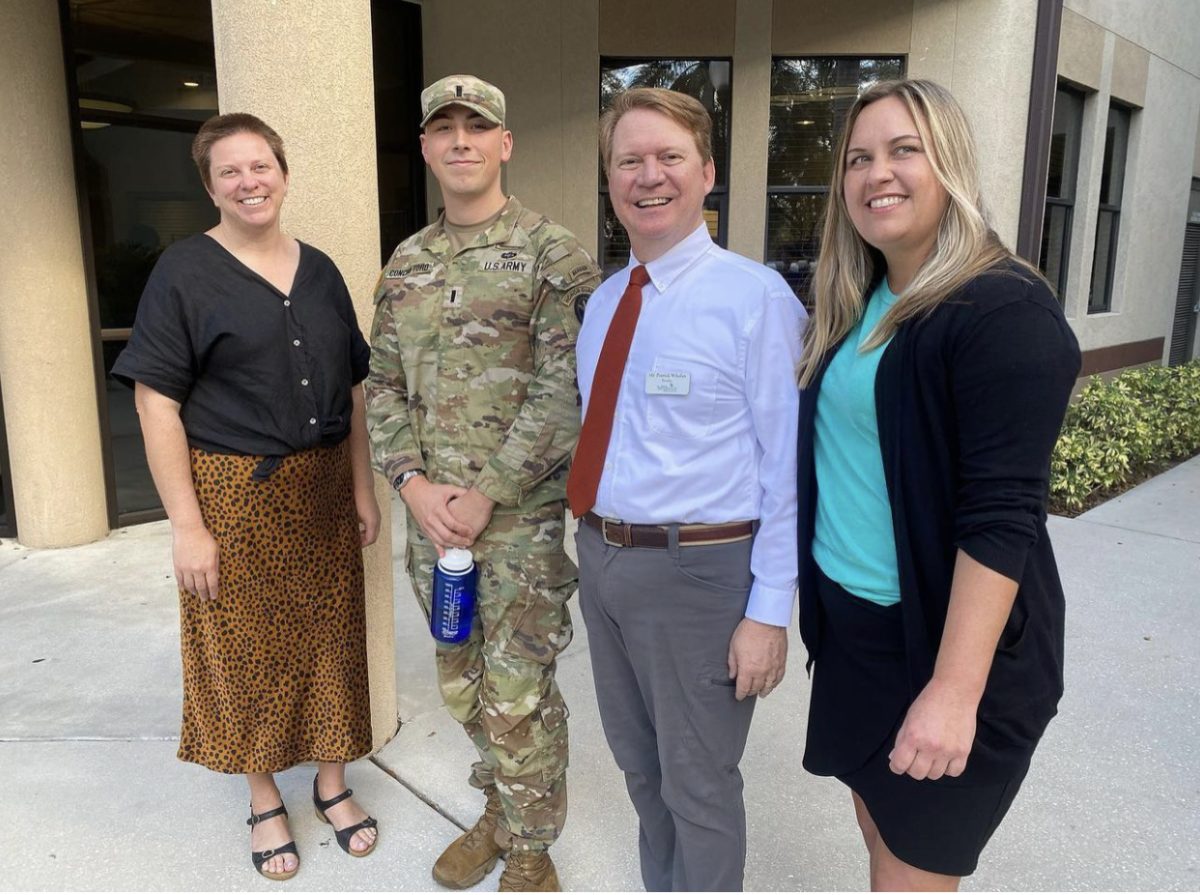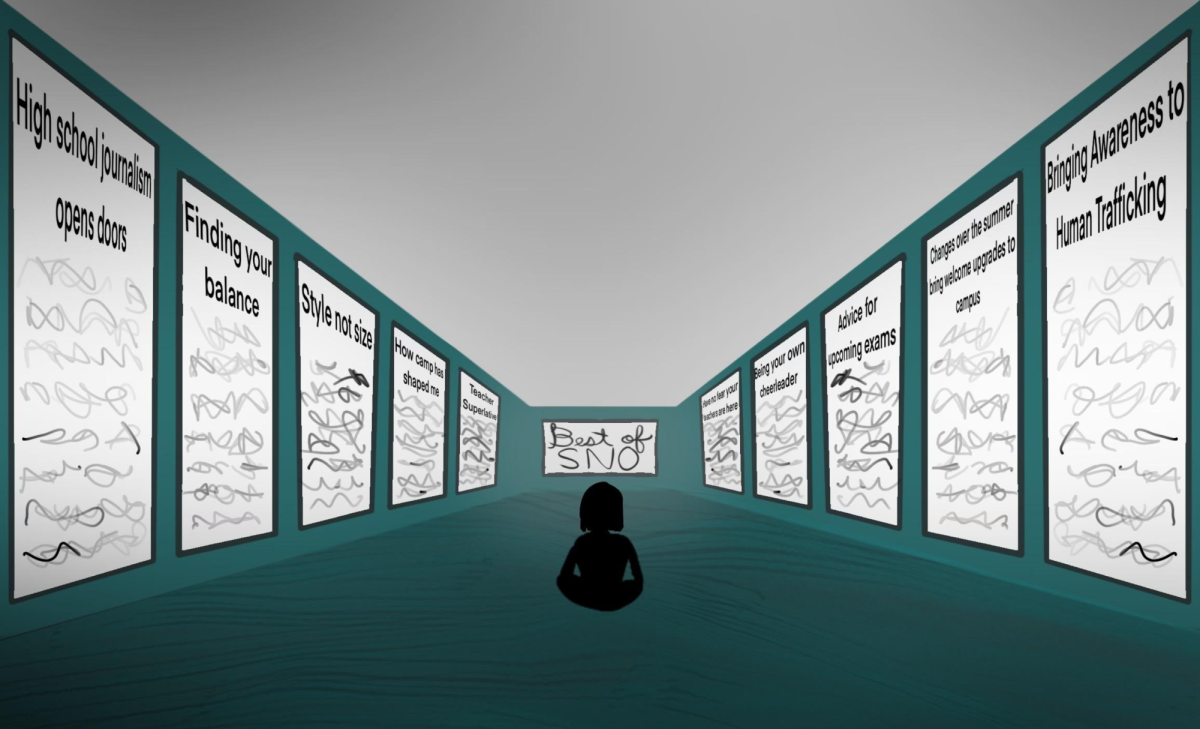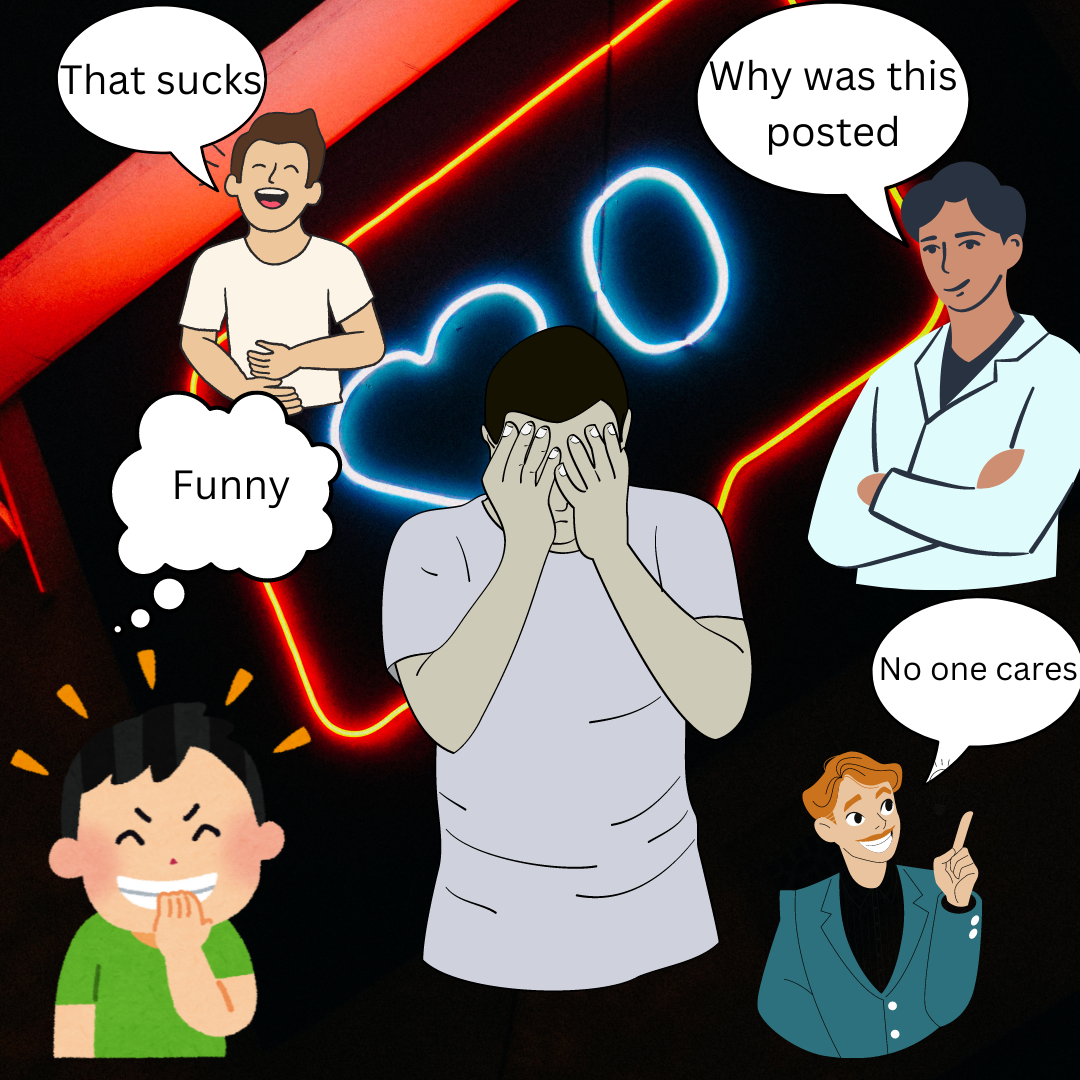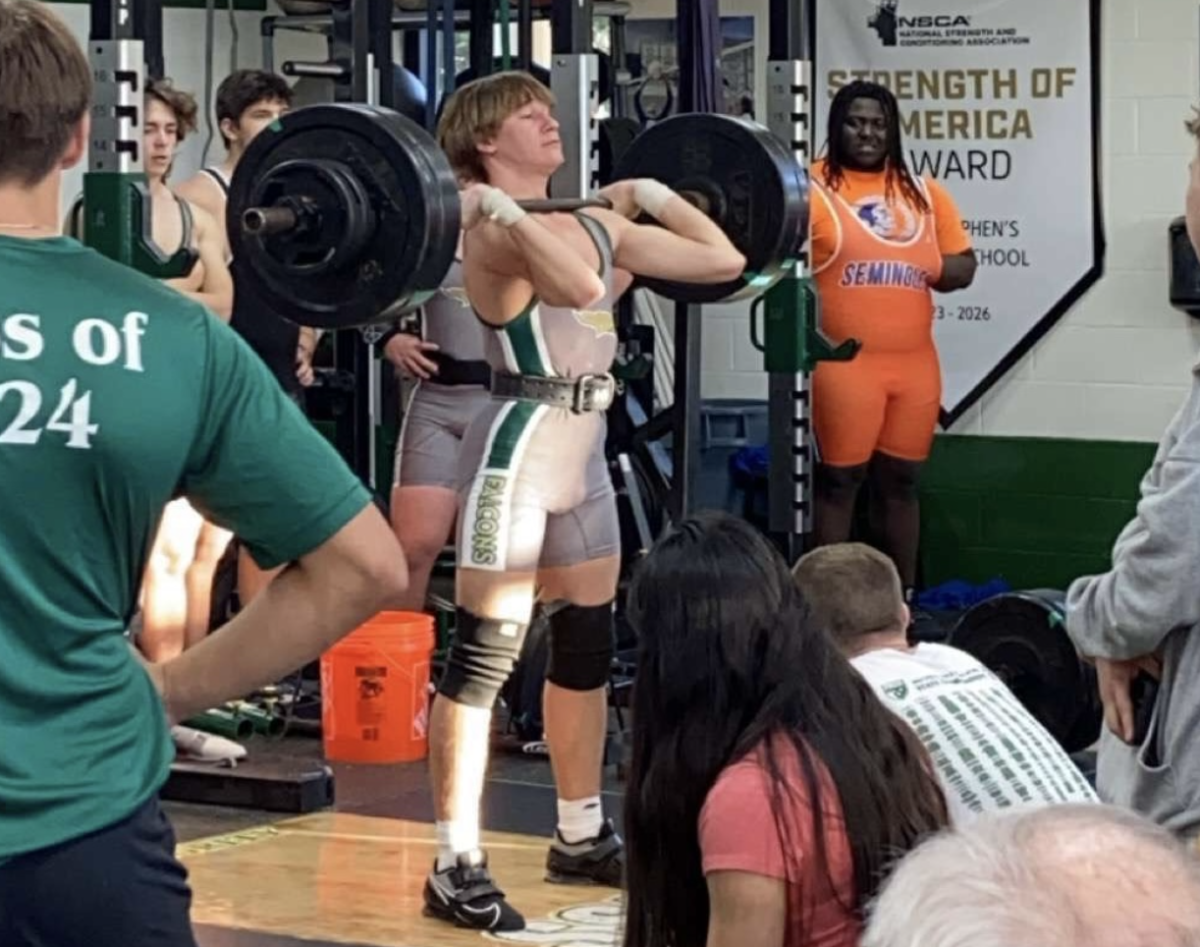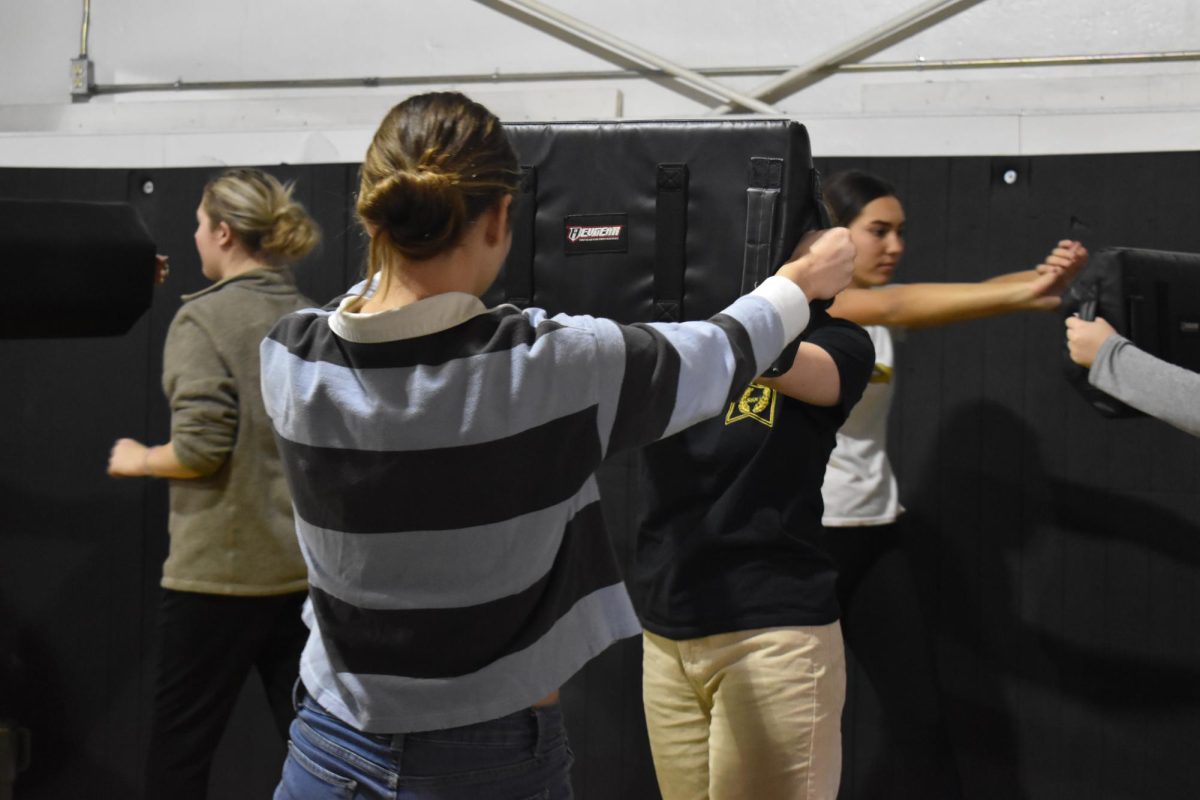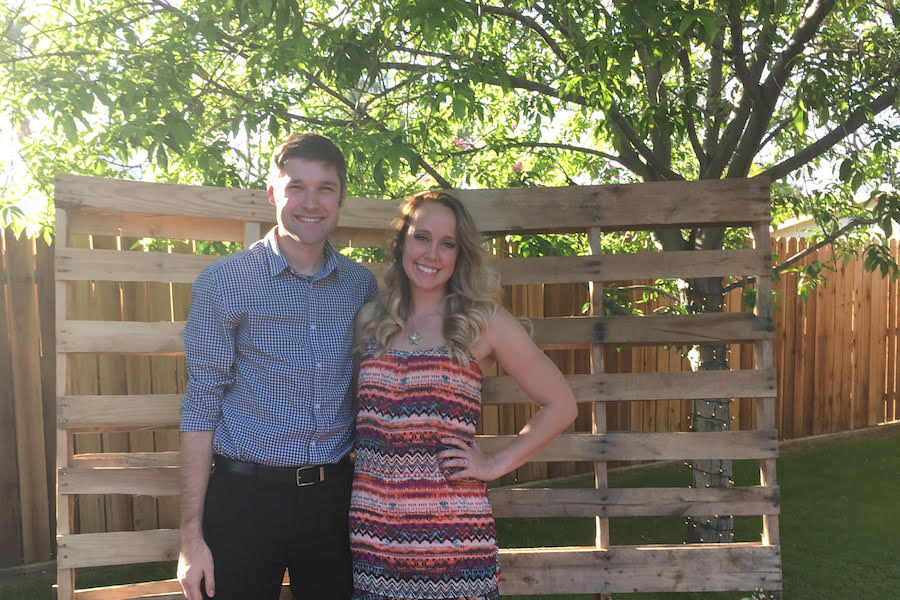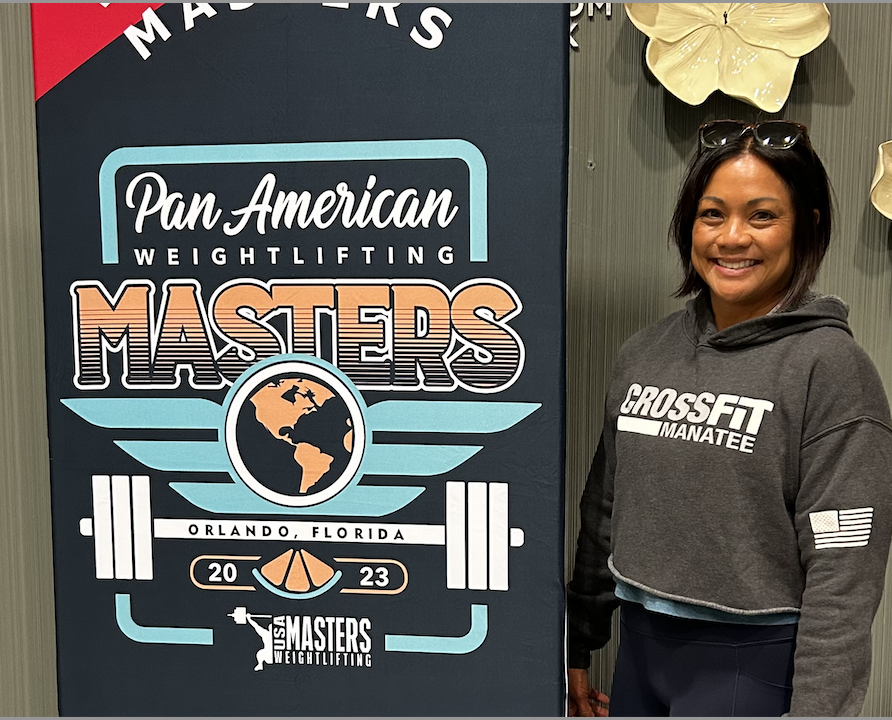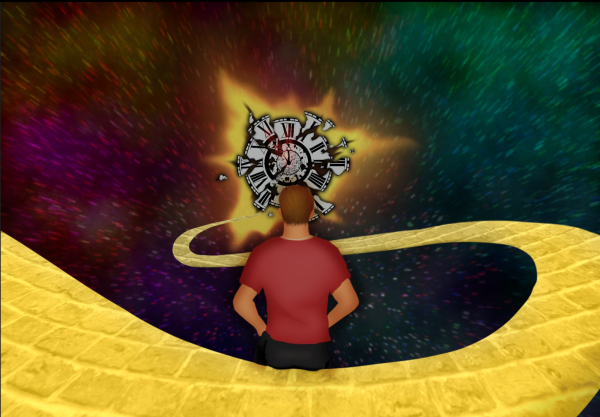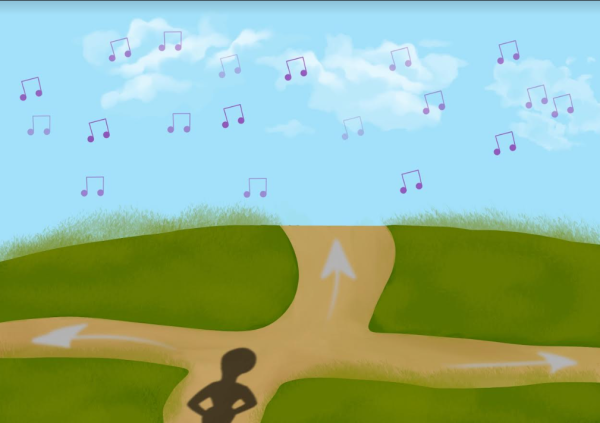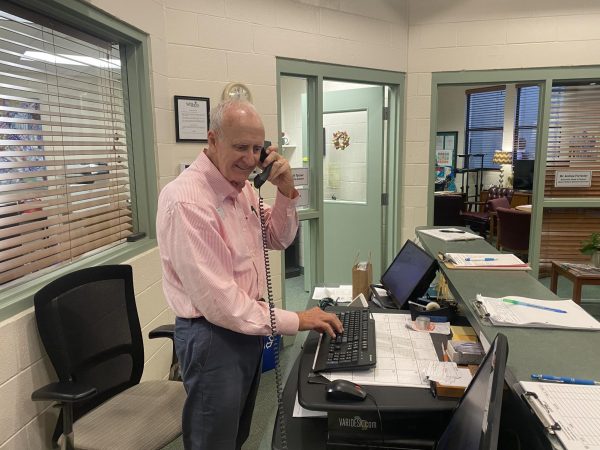Settling for Sun Chips
Settling for less than you deserve can become harmful, especially when the relationship you settle for becomes abusive.
A twist on a sun chips to show my distain for the snack . Art by Gauntlet Creative Director, Sarabeth Wester.
My body was shaking with excitement. After eight long hours of sitting behind my desk and learning my multiplication tables, it was finally time for aftercare. In 2nd grade, aftercare was like a second home to me. I knew where all the toys were, I knew everything about the computers, and I relished in anticipation wondering what snack they were going to feed us each day.
Except Tuesdays.
Tuesdays, my stomach growled and my tastebuds cringed: Tuesday was Sun Chip day.
I don’t think I’ll ever be able to fully explain how deep my hatred for cheddar Sunchips runs, but the combination of stale, grainy bites, and a faint flavor of fake cheese makes me throw up a bit in my mouth. As a second grader, every bite I took made me feel like I was chewing on cardboard. Yet, I still ate every chip on the napkin.
Why?
Eating something I thought was disgusting was better than starving.
Throughout our lives we settle. The act of accepting less than you deserve can be as minor as eating your least favorite food or watching a tv show you hate because your brother has the remote, but on a larger scale, it can be as life changing as staying in an abusive relationship or toxic workplace. Often, people settle because they don’t believe they deserve better, or they’ve been conditioned into thinking that they’re in the best spot they can be.
When I was 15, I settled for a job I hated because I was scared to leave. I had so much self doubt that I wouldn’t be able to find another job. I convinced myself that the environment I was working in was great– except– it wasn’t. I was overworked constantly, barely made minimum wage, and I never got breaks. My boss would tell me how lucky I was to be working there and would always make snarky comments about how I did a task or dealt with a customer. One time, I was wearing a white tank top and she told my coworker to make sure I “don’t take it off for tips.” I didn’t end up leaving until my friend recommended me for a position at her work, and they wanted to interview me.
When I finally left, I realized how unhappy I had been and how much better I could do.
But what if you can’t leave a situation that clearly isn’t right for you? What if your livelihood is dependent on the situation or person keeping you in that position? In some cases, an abuser. While it was fairly easy for me to quit a part-time job to escape a harmful work environment, escaping abusive relationships and domestic violence situations where one settles with an abuser because they provide housing and income can feel impossible and life threatening.
Throughout my life, I’ve watched friends and people close to me enter into relationships with violent and or emotionally abusive people. For most of them, at the start of the relationship, their partner seems great. They are showered with affection and gifts, and then feel like the relationship is strong. But not always. Their partner might have a rage-fueled outburst that leads to a broken vase, or a hole in the wall resulting from a fight, but “it was only one time.” Other than that, things were just perfect.
But the abuse isn’t physical. I’ve seen my friends get gaslighted, talked down to and manipulated by their partners. Eventually, they become convinced that they are at fault– that they intentionally caused the outburst or fight, and that they should apologize for their partner becoming violent.
This is when “settling” becomes a far more serious reality. Settling in relationships isn’t necessarily bad— your partner might not have everything on your hypothetical “perfect partner,” but overall, they might be a good person. However when you settle for someone who is violent or emotionally abusive because they check off the other boxes, you put yourself in danger.
Domestic violence happens far too often across the United States. According to thehotline.org (a resource for victims of domestic abuse), “Almost half of all men and women in the US have experienced psychological aggression in their lifetime.” For people facing domestic violence situations, it is often more complicated than just walking out the door and finding a better life.
More often than not, the victim feels trapped by their abuser or the situation; they might be afraid of what might happen if they leave, or have low self esteem due to the amount of verbal and physical abuse they may have suffered. Unfortunately, most victims don’t have the resources or support needed to leave the situation.
Abusers thrive by making their victim become completely reliant on them for emotional and financial support. They tend to isolate their victims and convince them that some of the most supportive people in their life are toxic. So how is it possible to escape?
Reach out- you may feel completely alone and isolated, or like there’s no way to survive without your abuser. However there are resources to help you escape the situation and move on to a healthier more stable life. One includes thehotline.org/. This organization helps you create a safety plan, informs you on local resources and organizations that can help you escape, and has various articles and resources on how to safely escape your situation as well as how to identify abuse.
Build a System- Branch out as far as your abuser will allow you, try getting involved in local events or activities. Creating a support system through these events can give the victim more self esteem and more opportunity to leave.
Finally, If you aren’t facing abuse but think a friend or family member might be, say something. If you notice them growing more distant or suddenly cutting you off, reach out. It is better to be safe than sorry, and reaching out or voicing your concern can save them from an abusive relationship.
1
Amelia Sabo is a first year Staff writer on the Gauntlet. She enjoys surfing, snorkeling, and watching her favorite movie, How to Train Your Dragon. Her...

Sarabeth Wester is a senior on The Gauntlet with four years under her belt of hard work in the newsroom as our Creative Director. Her favorite color is...



